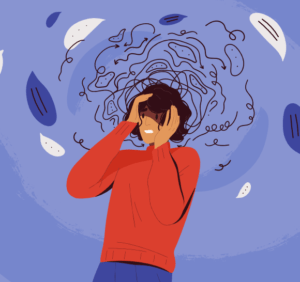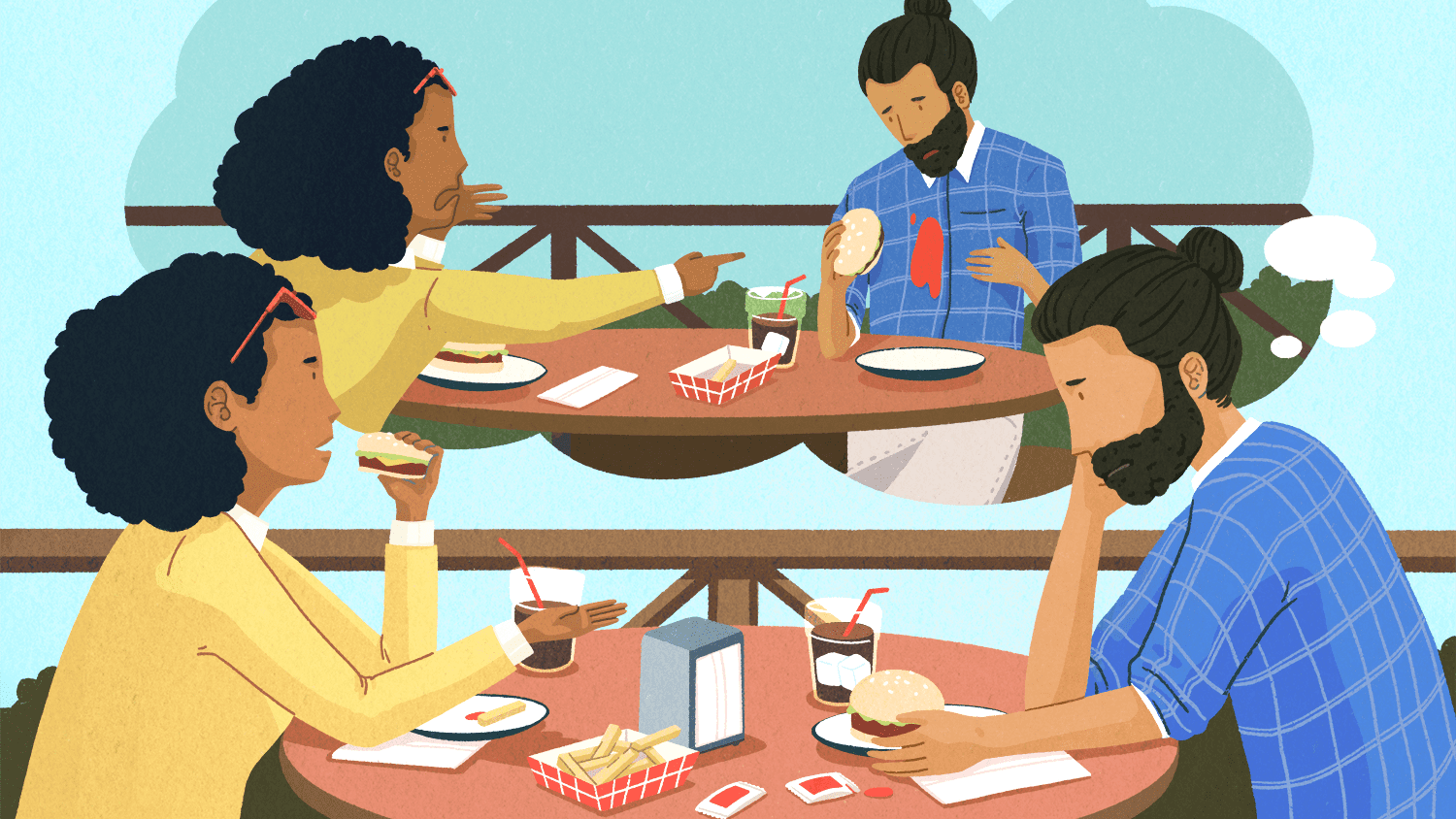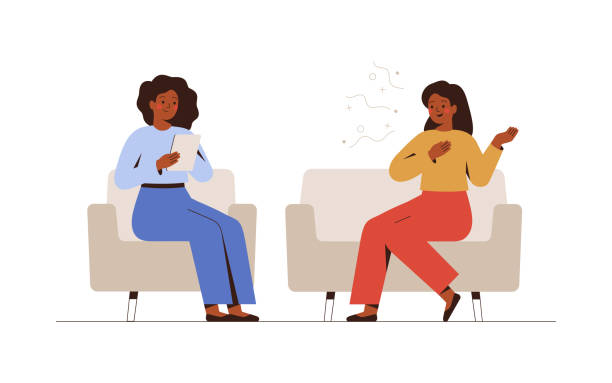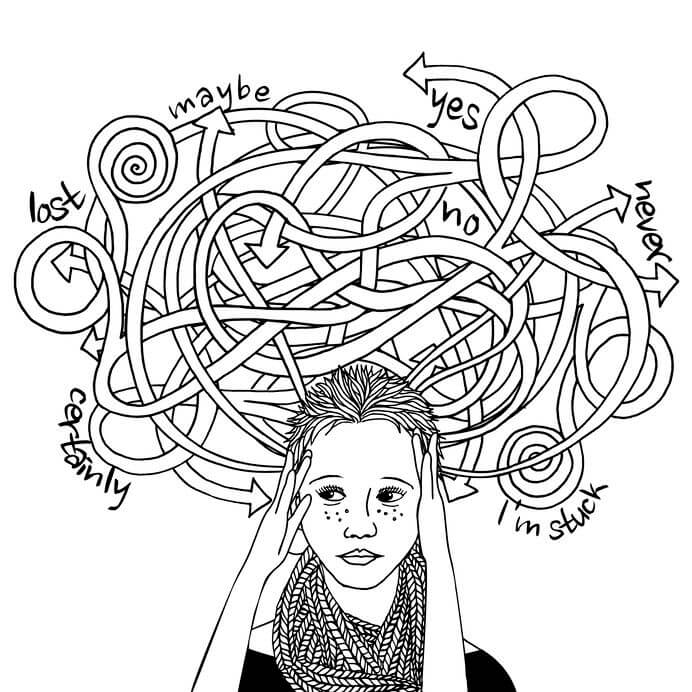If you are one of the millions of people who suffer from OCD, you know that intrusive and disturbing thoughts are a common symptom. These thoughts, which often center around sex, violence, or blasphemy, can be extremely upsetting and difficult to cope with. If you are struggling with forbidden thoughts of OCD, don’t worry – you are not alone. In this article, we will discuss how to cope with unwanted mental images and get your life back on track.
Contents
What Does “Intrusive Thoughts OCD” Mean?
 Intrusive thoughts OCD is a subtype of OCD that is characterized by unwanted, intrusive, and disturbing mental images. These images can be of anything that the individual finds distressing or anxiety-provoking. Common themes include violence, harm, sexual content, and blasphemy. Intrusive thoughts OCD can cause a great deal of distress and anxiety, as the individual is constantly bombarded with these unwanted and disturbing thoughts.
Intrusive thoughts OCD is a subtype of OCD that is characterized by unwanted, intrusive, and disturbing mental images. These images can be of anything that the individual finds distressing or anxiety-provoking. Common themes include violence, harm, sexual content, and blasphemy. Intrusive thoughts OCD can cause a great deal of distress and anxiety, as the individual is constantly bombarded with these unwanted and disturbing thoughts.
Intrusive thoughts OCD is not the same as having disturbing thoughts occasionally. It is a diagnosable condition that can be treated. If you are struggling with intrusive thoughts of OCD, know that you are not alone and there is help available.
If you have intrusive thoughts of OCD, you may:
-Constantly have unwanted and disturbing mental images
-Find these images distressing or anxiety-provoking
-Struggle to get rid of the images or make them go away
-Avoid situations or triggers that might lead to the images
-Spend a lot of time trying to neutralize or counter the images with other thoughts or actions
There are many ways to treat intrusive thoughts of OCD. Treatment usually involves a combination of medication and therapy. If you are struggling with intrusive thoughts of OCD, please seek help from a mental health professional. You don’t have to suffer any longer.
Intrusive thoughts OCD can be a very distressing and anxiety-provoking condition. If you think you might have this condition, please seek help from a mental health professional. There is no shame in seeking help, and treatment can make a world of difference. Remember, you are not alone in this struggle.
Negative Impacts of Intrusive Thoughts of OCD

There are many potential negative impacts of having intrusive thoughts, especially if they are of a violent or sexual nature. Some of these impacts are:
Isolation
Isolation is one of the most common negative impacts of intrusive thoughts. People with OCD often avoid people or situations that trigger their obsessions in an attempt to prevent the thoughts from occurring. This can lead to feelings of isolation and loneliness. There may be also many things that you used to enjoy that you can no longer do because of your fear of triggering the thoughts.
Guilt and shame
People with OCD often feel a great deal of guilt and shame about their thoughts. This is especially true if the thoughts are of a violent or sexual nature. The guilt and shame can lead to further isolation as well as depression and anxiety.
Depression
Depression is a common comorbidity of OCD. The shame, guilt, and isolation that are often associated with the disorder can lead to feelings of hopelessness and despair. The constant worry and rumination can also be exhausting, leading to fatigue and low energy.
Anxiety
Anxiety is another common comorbidity of OCD. The fear of triggering the thoughts can lead to avoidance behaviors that can make daily life difficult. The anxiety can also be overwhelming, leading to panic attacks or other forms of anxiety disorders.
Impact on relationships
The negative impacts of OCD can also extend to your relationships. The isolation that comes with the disorder can make it difficult to maintain close relationships. The constant worry and rumination can also be draining, both emotionally and mentally. This can lead to arguments and conflict within relationships. The avoidance behaviors can also put a strain on relationships, as it may be difficult to participate in activities that you used to enjoy together.
Work and school
The constant worry and rumination of OCD can also make it difficult to focus on work or school. The avoidance behaviors can also make it difficult to participate in work or school activities. This can lead to problems with job performance or grades. It may also be difficult to keep a job or stay in school if the OCD is severe.
Treatment of Intrusive Thoughts of OCD

There are many ways that people with OCD can get treatment for their intrusive thoughts. Some people may need to see a therapist or psychiatrist help them manage their OCD. Others may need to take medication to help reduce the symptoms of OCD. Still, others may need to do a combination of both therapy and medication.
The most important thing is that you find a treatment plan that works for you. If one treatment doesn’t work, don’t give up. There are many different options available, and it may take some trial and error to find the right one. Some of these are:
Medications
Medications are often used to treat OCD. The most common type of medication is a selective serotonin reuptake inhibitor (SSRI). SSRIs help to increase the level of serotonin in the brain. This can help to reduce the symptoms of OCD.
Therapy
Many different types of therapy can be used to treat OCD. The most common type of therapy is cognitive-behavioral therapy (CBT). CBT helps people with OCD to change their thoughts and behaviors. It can also help people learn how to better manage their OCD.
Exposure and response prevention (ERP) is a type of CBT that is often used to treat OCD. ERP involves exposure to the things that trigger your OCD symptoms, without letting you do the compulsions that you would normally do to relieve the anxiety. This can help to reduce your OCD symptoms over time.
Other types of therapy that may be used to treat OCD include:
- Acceptance and commitment therapy (ACT)
- Dialectical behavior therapy (DBT)
- Interpersonal therapy (IPT)
- Psychodynamic therapy
You can talk to your doctor or therapist about which type of therapy may be right for you.
Support Groups
Support groups can provide you with information and support from others who understand what you are going through. They can also be a place to share your experiences and connect with others who may be going through similar things.
There may be many different types of support groups available in your community. Some of these may be:
- 12-step programs
- Cognitive-behavioral therapy groups
- Family and friends support groups
- Online support groups
You can talk to your doctor or therapist about which type of support group may be right for you.
Self-Care
Self-care is an important part of treatment for OCD. There are many different things that you can do to take care of yourself. This may include:
Practicing relaxation techniques: Relaxation techniques can help to reduce anxiety and promote calmness. Some of these techniques may include yoga, meditation, and deep breathing exercises.
Making time for things that you enjoy: Doing things that you enjoy can help to reduce stress and improve your mood. This may include hobbies, spending time with friends and family, or taking vacations. There is no “right” way to do self-care. Find what works for you and stick with it.
Eating a healthy diet: Eating a healthy diet can help to improve your mood and give you more energy. It can also help to reduce stress. Eating a healthy diet includes:
- Eating plenty of fruits and vegetables
- Limiting processed foods and sugars
- Eating lean protein
- Drinking plenty of water
Taking good sleep: Getting enough sleep is important for overall health and well-being. It can also help to reduce stress and improve mood. Aim for 7-8 hours of sleep per night.
Exercising: Exercise can help to reduce stress, improve mood, and increase energy levels. It can also help to improve sleep quality. Aim for 30 minutes of exercise per day. This can be anything from a brisk walk to a more intense workout.
Conclusion
In conclusion, intrusive thoughts are a common symptom of OCD. While they can be disturbing and intrusive, it is important to remember that they are not reality. If you are struggling with intrusive thoughts, there are treatments available that can help.
If you think you might have OCD, talk to your doctor or mental health professional. They can help you find the right treatment for you.
If you’re struggling with mental health problems, know that you’re not alone. MantraCare is here to help you with these mental health disorders. We offer group therapy, self-help strategies, and professional help. Contact us today to learn more about how we can help you! Helping someone with these disorders can be difficult, but it is important to encourage professional treatment, listen and be supportive, and encourage healthy coping mechanisms. MantraCare is here to help you every step of the way. You can also book a therapy or download our free Android or iOS app.


